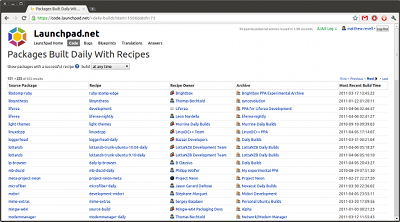Social private teams
Thursday, January 26th, 2012The title may sound like a contradiction, but I assure you that it is not. You can now use private teams in social contexts in Launchpad. Private teams can collaborate with public projects and other teams if they choose to reveal the existence of the private team.
- Private teams can me members of other teams.
- Other teams can be members of private teams.
- Private teams can subscribe to bugs, blueprints, branches, and merge proposals
- Private teams can be in public project roles, such as maintainers, drivers, and bug supervisors.
- You can change the branch owner to be a private team.
- Private team personal branches (+junk) are always private.
When a member places the private team in a social situation, a the member is asked to confirm that it is okay to reveal the team’s identifying information. This information is the team’s Launchpad Id used in URLs, the displayname, icon, and logo. A user can visit the private team’s Launchpad page and will only see that information. The rest of the page is not shared. Anonymous users cannot see a private team’s page because that user is not being social; logged in users can see the private team’s page
Launchpad did not permit these interactions previously because it was not clear who should know about the team. Someone has to know. If Launchpad permitted private teams to subscribe to bugs or be members of teams without anyone knowing of them, they would be unaccountable. Private teams could spy on organisation, or learn about security vulnerabilities to exploit. Launchpad will not ever permit such asocial behaviour. The resolution for social interactions was to permit other parties to know enough of the private team to make an informed decision. For example, when I choose to make a bug private, I want to know who was already seen the bug through a subscription. I may choose to unsubscribe the private team if I do not trust them.
Private teams may invite exclusive teams to be members. Exclusive teams (moderated or restricted teams) review all members so they are accountable. If a team admin trusts the admins of another team, and that team is accountable, Launchpad permits the other team to be a member. This is actually a rule that applied to all exclusive teams. private teams are always exclusive (restricted membership policy). The only nuance with private teams is when it is a member of another team; the super team may know the members of the private sub team because the super team has the right to audit all its members so that it too can be accountable.


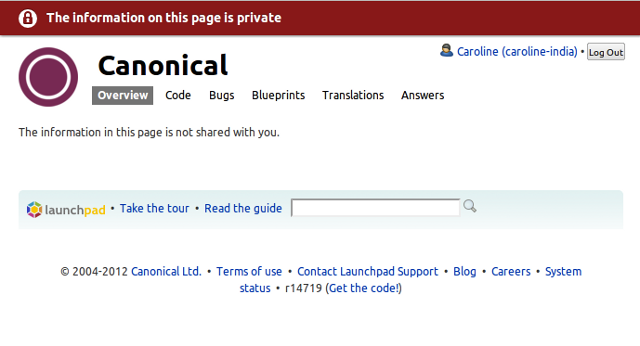
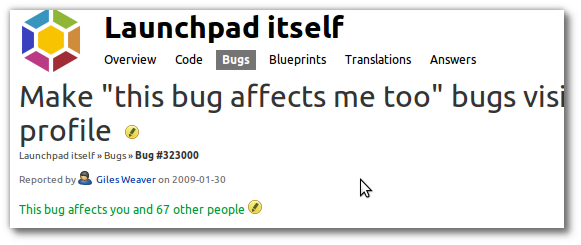

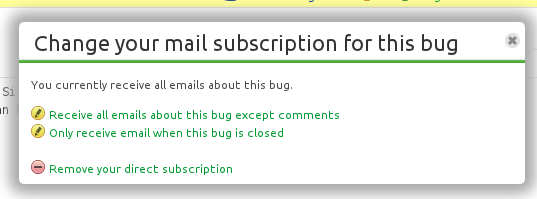
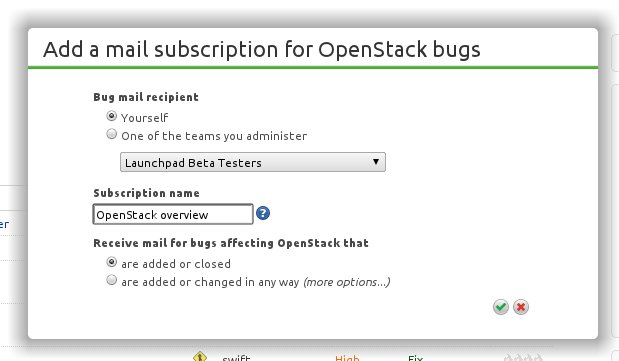
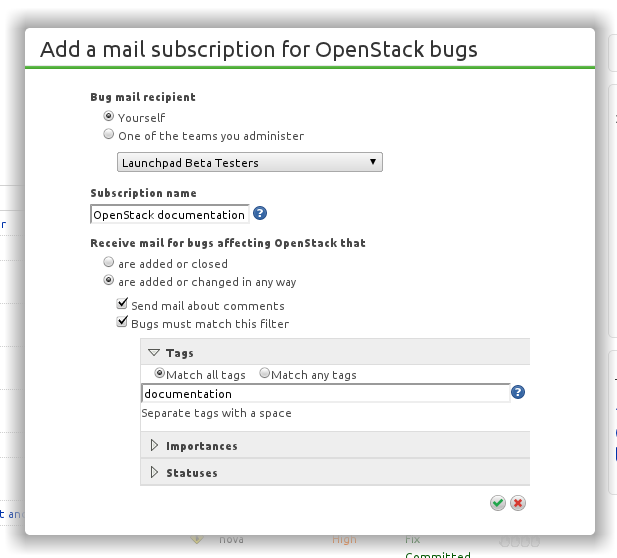

 Launchpad has quite a few background tasks that update things outside of your browser request, and the only way you know that they finished is to reload a page to see if it changes.
Launchpad has quite a few background tasks that update things outside of your browser request, and the only way you know that they finished is to reload a page to see if it changes.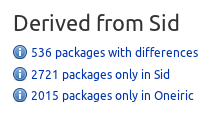
 It’s incredible to think that more than 57,000 people have used Launchpad to translate software from English into their own language.
It’s incredible to think that more than 57,000 people have used Launchpad to translate software from English into their own language.

